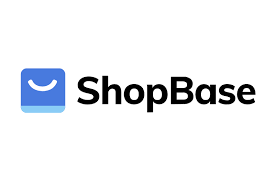Which Website Platform Should You Use to Sell Trade Marks? In today’s digital age, selling trademarks on website platforms is a popular method to reach customers and expand the market. Online selling allows sellers to reach a larger audience without geographical limitations, helping to increase revenue and profit.
However, according to Hacecommerce, we need to consider factors such as popularity, reliability, cost, and customization options to choose the right website platform. Selecting the right platform will help sellers achieve the best business results.
1. Factors to Consider When Choosing a Website Platform to Sell Trade Marks

Selling trademarks on website platforms is a popular method for finding customers and expanding the market. However, to choose the right platform, you need to consider the following factors:
- Platform Popularity: The website platform should have a large user base and be widely recognized to help you reach more customers.
- Platform Reliability: The platform must ensure customer security and that its transactions are accurate and secure.
- Usage Cost: The cost of using a website platform for selling Trade Marks is also an essential factor. You should evaluate these costs to optimize your profits.
- Customization Capability: The platform should allow you to customize your storefront to create a better customer shopping experience.
Some popular website platforms for selling Trade Marks include Shopify, ShopBase, and WordPress. However, to select the most suitable platform, you should refer to user reviews on tech review sites for more detailed insights.
2. Popular Website Platforms for Selling Trade Marks
2.1. Shopify

Shopify is an e-commerce platform established in 2004 in Canada, designed to create online stores. This platform provides a wide range of tools and features, allowing users to build and manage their online storefronts easily.
Shopify offers various service plans, including free and paid options, with different pricing and features to suit user needs. It also integrates with third-party applications such as Facebook, Amazon, and eBay to expand sales channels.
Shopify provides tools for customizing store designs, inventory management, payment processing, and shipping. Additionally, it features revenue tracking, customer data storage, and marketing campaign creation.
Due to its high security and flexible customization options, Shopify is one of today’s most popular and widely used e-commerce platforms. It is trusted by millions of businesses worldwide, including both large brands and small enterprises.
Advantages of Shopify for Selling Trade Marks:
- Ease of Use: Shopify offers a simple and user-friendly interface, allowing users to create and manage online stores without programming skills.
- Easy Integration: Shopify integrates with multiple third-party applications, helping users expand sales channels and manage business operations.
- Comprehensive Features: Provides various sales management features, including inventory management, payment processing, shipping, and revenue tracking. It also includes marketing tools such as promotional campaigns and discounts.
- High Security: Ensures the security of customer and payment information, providing peace of mind for users.
Disadvantages of Shopify for Selling Trade Marks:
- Usage Cost: Shopify offers different pricing plans, and the cost may be high for small businesses.
- Limited Customization: Although Shopify has customization tools, deep customization may be challenging for users without programming experience.
- Transaction Fees: Shopify charges transaction fees for sales made on the platform, which can impact profits.
- SEO Limitations: Shopify has limitations in search engine optimization (SEO), which may reduce website visibility in search results.
2.2. ShopBase

ShopBase is an omnichannel e-commerce platform established in 2018, offering online selling solutions for small and medium-sized businesses. It allows users to create online stores and manage multiple sales channels, including websites, Facebook, Instagram, and Google Shopping.
ShopBase provides various sales management features, such as order management, product management, inventory management, payment processing, and shipping. Additionally, it offers marketing tools such as promotions and discounts.
ShopBase is highly rated for its user-friendly interface, diverse features, strong security, and third-party tool integration. It also provides user support and consulting services to help businesses grow on the platform.
Advantages of ShopBase for Selling Trade Marks:
- Omnichannel Capability: Allows users to manage sales across multiple channels like websites, Facebook, Instagram, and Google Shopping, helping businesses reach more customers.
- Flexibility: Allows customization of store interfaces and product pages to match brand identity.
- Diverse Features: Offers various sales management tools, including order management, product management, inventory tracking, payment processing, and shipping.
- High Security: Implements security measures to protect customer and business information.
- Support & Consulting: Support and consulting services to help businesses grow on the platform.
Disadvantages of ShopBase:
- Usage Fees: ShopBase charges platform usage and transaction fees per order, which can be a significant expense for small businesses.
- Limited Features: Some features may be less comprehensive compared to other platforms, particularly in third-party tool integrations.
- Country Limitations: ShopBase is not yet supported in some countries, which may pose challenges for businesses operating in those regions.
2.3. WordPress

WordPress is a free and open-source content management system (CMS) widely used for creating and managing websites and blogs. It was developed in 2003 by Matt Mullenweg and Mike Little and has since become one of the most popular web platforms, powering over 40% of all websites worldwide.
Key Features of WordPress:
- Ease of Use: Designed for ease of use, requiring no coding or advanced technical skills to create and manage websites.
- Customization & Flexibility: Offers a vast selection of themes and plugins, allowing users to customize and develop websites according to their needs.
- SEO-Friendly: Built-in SEO optimization features help websites rank higher in search engine results.
- Social Media Integration: Allows content sharing on social media platforms and customer engagement.
Disadvantages of WordPress:
- Security Risks: Although WordPress offers security features, its open-source nature makes it more susceptible to hacking.
- Page Load Speed: WordPress websites can suffer slow load times if not correctly configured, especially when using many plugins or heavy themes.
- Frequent Updates: Requires regular updates for security and performance, which can be complex for some users.
3. Conclusion
Shopify, ShopBase, and WordPress are popular CMS platforms for selling Trade Marks online.
- Shopify: Specifically designed for online businesses, offering features like store creation, inventory management, payment processing, and customer support, but includes transaction fees.
- ShopBase: A cross-border e-commerce platform with multilingual capabilities, though it involves monthly fees and transaction costs.
- WordPress: A highly customizable and flexible open-source CMS with strong SEO capabilities and relatively good security.
In summary, if you’re selecting a platform for selling Trade Marks, WordPress may be a great choice due to its high customizability, strong SEO optimization, and good security.
Additionally, Hac Ecommerce offers a range of comprehensive services designed to support and empower businesses operating in the POD (Print on Demand) industry. These services include fulfillment solutions, payment account rentals, and design cloning, all of which are tailored to meet the unique needs of entrepreneurs in this niche.

